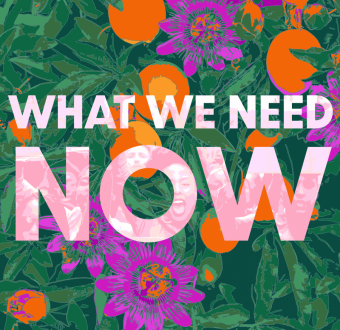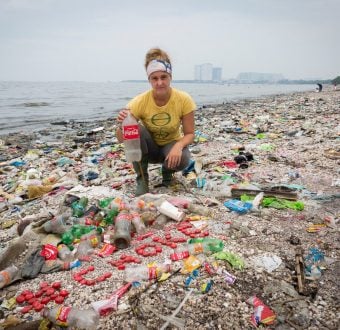A recent market research study found that most people come to environmentalism via food. You may have found this too. Talk to a woman with a toddler and you may find yourself chatting about toxins and preservatives. Talk to a gardener and the topic becomes genetically modified foods.
Food is the door to a lot of conversations about how we live.
The other day I saw one of those lists of the worst foods for the environment. Do you think you know them?
- Conventional coffee – Biologically rich forests are cleared in favor of coffee crops, which devastates tropical species, especially migratory birds
- Blue fin tuna – They take forever to grow and are under threat from overfishing
- Factory farmed beef – It takes 10 to 14 pounds of grain-based feed for a cow to gain 1 pound of flesh and then there’s refrigeration, which takes a lot of energy, etc.
- Palm oil – Where do we start? How about here—they are often called the largest cause of rainforest destruction
- Genetically modified corn – Destroys habitats, depletes soils, breaks nutrient cycles, pollutes air and water, contaminates native maize varieties, and on and on
Here are some ideas about how to eat well and sustain the planet, not just yourself!
One of the entreaties foodies offer is to “eat seasonally.” But what does that really mean? Do I have to limit myself to only tomatoes in the summer and squash in the winter if I live in the Northern hemisphere? Does it mean I can’t eat salad at all in the winter?
To learn more, I called my friend Andre. Andre LaRiviere is a Vancouver-based consultant specializing in sustainability strategies for restaurants and other food outlets. This means he thinks about food in a strategic, big picture way: How to keep the planet feeding us in the most harmonious way possible. He gave me some great ideas; here are three.
- Check the website of your local farmer’s market and find out what grows when where you live.
- You can follow larger, seasonal trends in the food system, even during winter. For example, the early part of the year in the north is citrus season, so you can enjoy things like blood oranges and grapefruits even in colder months. Even fish has different seasons in the year.
- All the cool chefs are putting their creative juices towards jazzing up root veggies! (Butternut squash gnocchi anyone?)
Since talking to Andre, I’ve noticed that fancy chefs are always jazzing up root veggies. That seems to be their challenge so I’m making it mine. If you are also interested, you can find some great seasonal recipes here.

Sustainability is not an absolute term. In fact, it is relative. So says Dr. Daniel Pauly. And he’s a guy we should listen to—National Geographic named Dr. Pauly as a 2015 ocean hero. They cited his admirable and life-long effort to protect marine life. He is a world leader in identifying overfishing as a threat to marine ecosystems and global food security.
That’s what they study at Sea Around Us, an international research group based at the University of British Columbia Fisheries Centre which he founded and leads.
Dr. Pauly is also famous for creating one of the seminal phrases in environmental work: Shifting Baseline Syndrome, our word of the month.
The idea is that you have to experience something to know it’s true. In the 1950s, there were lots of cod off the coast of Newfoundland. But if you grew up in the 70s you don’t think of cod as plentiful. Or if you never saw herds of bison on the prairies, you think seeing three is plenty, when it’s really paltry compared to what was there before you arrived.
Here are some links to some of Dr. Daniel Pauly’s impressive work.
Listen to this month’s podcast and explore more stories in the Greenpeace Podcast archives.


